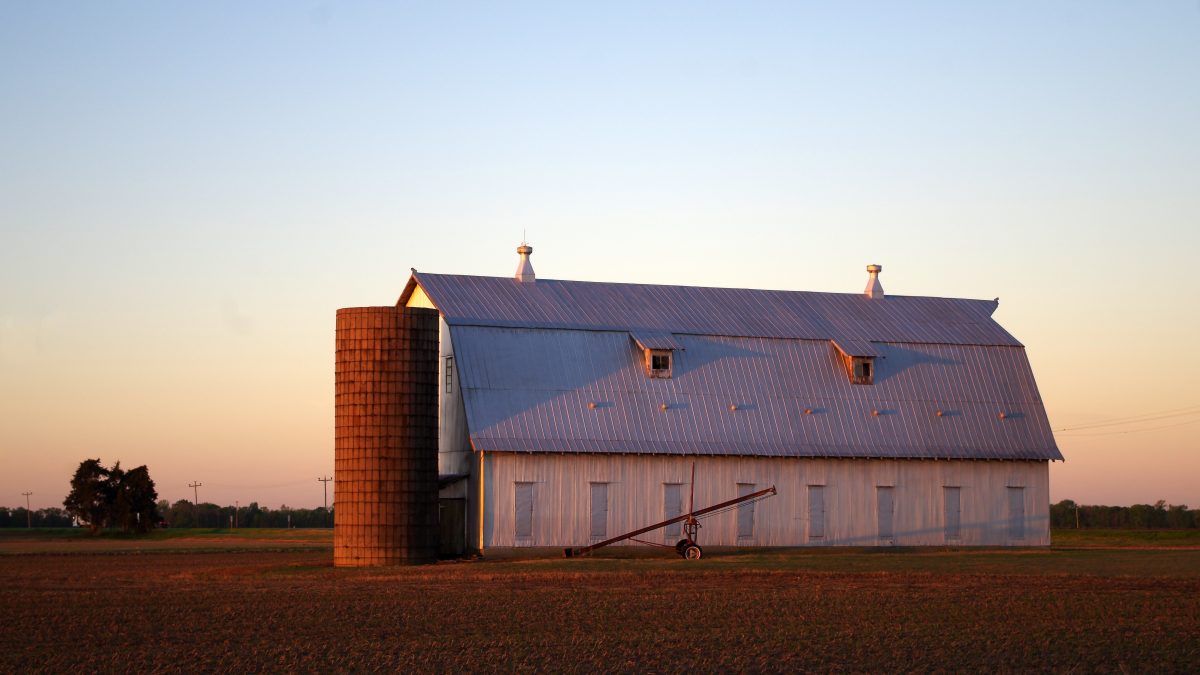Farm Bankruptcies Down Dramatically in 2021
TOPICS
Farm Income
photo credit: Arkansas Farm Bureau, used with permission.
Veronica Nigh
Former AFBF Economist
What a difference a year can make. After a near-record number of Chapter 12 farm bankruptcy filings in 2020, according to data from the U.S. Courts, Chapter 12 bankruptcy filings were down an incredible 50% in 2021. The number of Chapter 12 filings in 2021 is the lowest in the last decade and this is the first time in at least 10 years that there were fewer than 300 filings. The decrease in bankruptcy filings is a noteworthy shift given the significant increases in the number of bankruptcies over the previous three years.

Chapter 12 Bankruptcies by Region
Chapter 12 bankruptcies were down in every region in 2021. The region with the largest percentage decrease in Chapter 12 filings was the Northeast – Connecticut, Massachusetts, Maine, New Hampshire, Rhode Island and Vermont -- which had a decrease of 82% from 2020, with 23 fewer Chapter 12 bankruptcies. The region with the largest decrease in Chapter 12 filings by absolute number was the Midwest – Iowa, Illinois, Indiana, Kansas, Kentucky, Michigan, Minnesota, Missouri, North Dakota, Nebraska, Ohio, South Dakota and Wisconsin, which had 144 bankruptcy filings in 2021, down from 297 filings in 2020 – a decrease of 153 filings. The Midwest still leads all regions in the number of filings, accounting for 52% of all Chapter 12 filings in the U.S.
Other parts of the country also had significant declines in the number of filings in 2021, relative to 2020. Four regions had double-digit declines in the number of Chapter 12 filings by both absolute number and by percentage. The Northwest had 42 fewer filings in the past year, down 81% from 2020. The Southeast had 35 fewer filings in 2021, down 40% from 2020. The West and Southwest, despite drought conditions that persisted throughout much of the growing season, had 10 and 18 fewer Chapter 12 bankruptcies, respectively, in the past year, down 53% and 40%, respectively, from 2020. Finally, the Mid-Atlantic had two fewer Chapter 12 bankruptcies in the past year, down 8% from 2020, making it the region with the smallest year-over-year decline.

Chapter 12 Bankruptcies by State
Total bankruptcies filed by state vary significantly, from no bankruptcies in some states to as many as 27 filings in others, as shown in Figure 2. Alaska, Connecticut, Hawaii, Maryland, New Hampshire, Nevada, Rhode Island, Utah, West Virginia and Wyoming had no Chapter 12 bankruptcies filed in the past year. These states have consistently had low numbers of bankruptcies in the past decade. In contrast, Wisconsin (27) and Minnesota (26) led the nation in Chapter 12 filings. Six additional states had double-digit filings in 2021: Kansas (19), Iowa (17), Nebraska (17), North Carolina (12), Alabama (10) and Georgia (10).

As seen in Figure 4, total bankruptcy filings were down in 36 states and 10 states had no filings in either 2020 or 2021. Bucking the overall trend, five states saw no decline in the number of filings in 2021 relative to 2020. Three states – North Carolina (12), Alabama (10) and New York (nine) had an increase of seven, three and one filing, respectively, in 2021 relative to 2020.

Summary
For the first time in the last decade, every region in the United States had fewer farm bankruptcies in the last year, compared to the year before. This decline is certainly worthy of celebration; however, it is important to not lose sight of the fact that 276 Chapter 12 bankruptcies were filed in 2021. Returns to farm operators have been incredibly volatile over the last decade, ranging from $58.6 billion to $134.5 billion between 2012 and 2021. USDA’s current projection of $95.2 billion in returns in 2022 lies nearly smack dab in the middle of that range. So, while the last year has brought higher commodity prices for some, it has most certainly brought higher input costs for all. How the latter compares to the former will dictate whether the trend of fewer bankruptcies will continue be “in” or “out” in 2022. For once, this is a trend we hope has some staying power.
Trending Topics
VIEW ALL